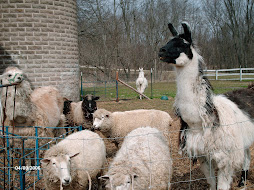Lynn Hodnett
Ms. Peifer
10IB English Hour 5
April 13, 2009
The first excerpt of the Tao Te Ching talks about Nature herself and how humans should listen to her. It states, "Hence always rid yourself of desires in order to observe its secrets" (line 7 Tzu). The Tao Te Ching also tells the reader that humans, no matter how hard they try, will never ever discover all of the secrets that Nature has: "Mystery upon mystery- The gateway of the manifold secrets" (lines 12-13 Tzu).
The next excerpt says that if one does not value any material goods, then it will never be missed by the owner or stolen by another person: "not to value goods which are hard to come by will keep them from theft" (lines 11-12 Tzu). It also encourages people to not pursue an education for oneself and take no action whatsoever. By doing this, people will stay out of Nature's way and circumstances will fall how they are supposed to.
The third excerpt of the Tao Te Ching speaks about how humans should accept the fact that objects in life don't stay the same, but change and fade away: "the sharpness cannot be presered forever" (line 30 Tzu). This section also tell the reader to stop trying earn wealth because it will only cause stress, distaster, and unhappiness: "To be overbearing when one has wealth and position Is to bring calamity upon oneself" (lines 33-34 Tzu).
The last excerpt of the Tao Te Ching teaches the reader that to be calm and meek will assist with problems that they encounter on the hard road of life: "The most submissive thing in the world can ride roughshod over the hardest in the world" (lines 1-2 Tzu). This section also talks about how that to do nothing is constantly the correct action to take and that to gain true knowledge is to recieve it through Nature, not through the words of another person: "The teaching that uses no words, the benefit of resorting to no action, these are beyond the understanding of all but a very few in the world" (lines 6-8 Tzu).
Confucian teachings are distince from Taoist teachings in the way that they have different opinions about what kind of order the world present to humans. Confucianism believes that the world order is choatic and can be improved by having individuals better themselves so they can better the world around them. This is shown in a section of The Analects: "Govern them by moral force, keep order among them by ritual, and they will keep their self-respect and come to you of their own accord" (stanza 10 Confucious). Taoists, on the other hand, think that the world is just how it should be and to try to mess with the way of Nature is folly. This is seen in an excerpt from the Tao Te Ching: "That is why I know the benefit of resorting to no action. The teaching that uses no words, the benefit of resorting to no action, these are beyond the understanding of all but a very few in the world" (lines 5-8 Tzu).
Subscribe to:
Post Comments (Atom)



No comments:
Post a Comment